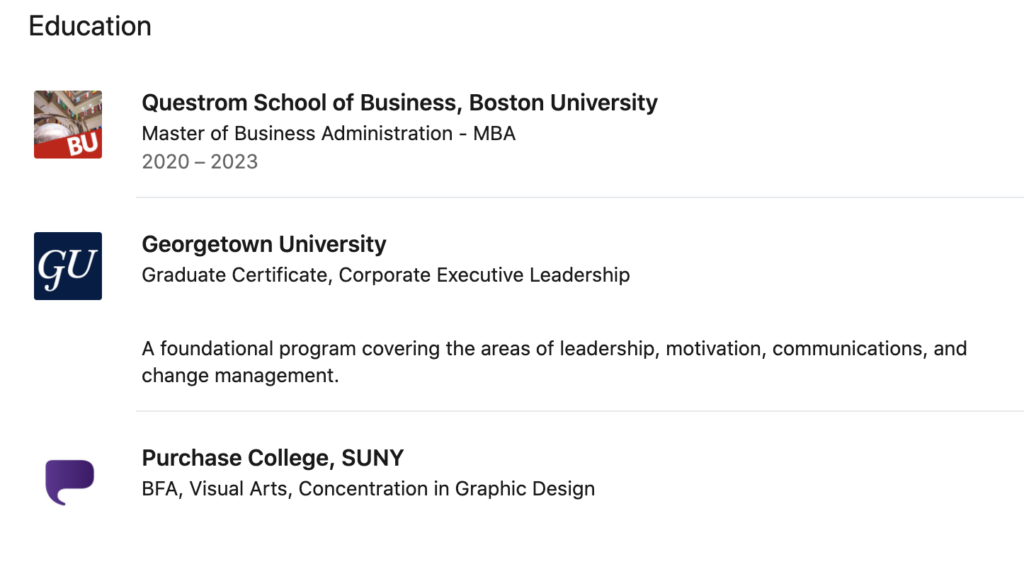
Well, here we go.
Why would a designer get an MBA?
Early in my design career, I was the only interaction designer at a burgeoning ecommerce startup. I found myself pushing pixels around my computer screen after hours in the latest of a string of late nights. I was in the process of transforming our company’s aging, buggy, and quirky checkout flow into a more stable and usable version that could allow the company to scale with confidence. The checkout flow of any ecommerce site is the linchpin of the business; any problem can have significant downstream effects on revenue, service level commitments, and customer satisfaction. It made sense that the VP of marketing would stop by to look in on my progress and ask a few questions.
“How do you think this will affect conversion,” he asked. He pressed further, “how do you know it’s worth the risk?” His questions were straightforward, but I struggled. “This will drastically improve the conversion rate for a wide swath of our customers,” I said, based solely on my opinion that the design looked better than the old version. I had no concept of how to measure that improvement and, most importantly, I lacked the vocabulary to describe the downstream outcome for the business.
In the thirteen years since that late night, my competency with business metrics has deepened significantly. My design process now goes much further to align business and customer outcomes. I have taken an active role in facilitating design projects with numerous business stakeholders, both as an in-house designer and as an independent consultant. I have guided teams through the Design Sprint process, leading customer research efforts, and designing new product experiences.
In spite of my best improvements, challenges remain in connecting business strategy with the design process. Business leaders typically only experience the impact they have on customers through a narrow set of quantitative metrics. Design leaders, while working directly on the products that affect customers, sometimes lack the vocabulary to articulate the impact of design decisions on business outcomes. This tension is where my career lives, every day.
While I have a design background, I have regularly taken steps to learn the language of business with greater fluency. It’s not hard to imagine the steady stream of business books and Medium articles, the webinars, the various workshops. Over time, this served me well, but now that I am assuming greater responsibility through leadership, I’m ready for a greater investment. The MBA is the next step.
Why this MBA?
I will be attending the Online MBA through Boston University Questrom School of Business. I landed on it for a combination of reasons.
Online format: I was looking at this option before the pandemic, but with social distancing rules in effect for everyone’s safety, an online option has made a tremendous amount of sense. Day to day logistics of transitioning from work to class will be far easier (or at least faster) through an online program.
Diverse cohort: I’ll be joining the second semester of incoming students for this program. So far, the program has accepted students from all over the world and in a wide range of backgrounds. The incoming class averages ~12 years of work experience, as well.
Generalist curriculum: I have some confidence in my specialization as a designer and design leader and I’m seeking greater foundation in business fundamentals, data, risk, and strategy. This program is targeted for people who people like me who are not trying to change career paths.
Cost: as I began researching MBA and Executive MBA options locally, they all ranged from $70-$125K all in, and those prices could change per-semester. This program’s $24K cost, paid $4K at a time, is an amount I can live with.
The greater BU community: This is a lesser, but interesting factor as far as selecting this particular program. I don’t have any connection to BU (yet), but I have been encouraged by what I have seen thus far. I am pleased that BUQSB has committed to the online MBA program with the hiring of a dean for online programs, Dr. Monica Moody Moore. Perhaps the most resonant development I found is BU’s commitment to racial equity, demonstrated in the selection of Dr. Ibram X. Kendi to lead the formation of the Center for Antiracist Research. Dr. Kendi’s work on antiracism has been an inspiration and I am thrilled to know that his work will find a vibrant new home at BU.
And so it goes. I’m looking forward to starting in January and following this path wherever it may lead.